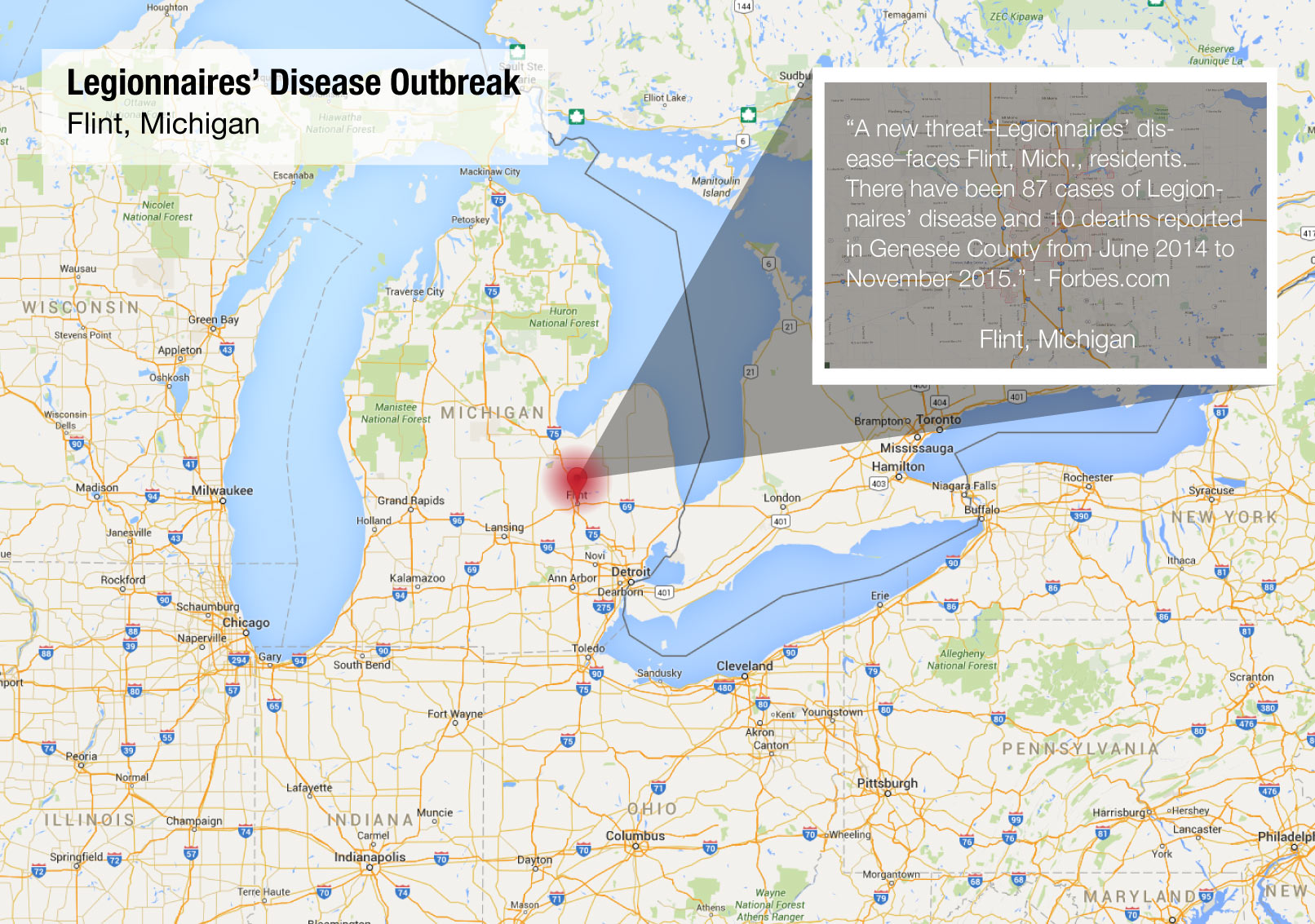Reservoirs are artificial and/or natural water supplies that provide water to neighboring communities for consumption. They are an important part of the water infrastructure as they serve as a storage for one of the most crucial resources for all living things. With that being said, major problems can arise if a reservoir becomes contaminated with foreign matter, leading to epidemics and suffering among the communities they were designated to serve.
In the case of contaminated water supplies, Flint, Michigan demonstrates how pervasive the destruction of a reservoir can be. For the past five years, Flint has dealt with lead poisoning in their water supply due to the deterioration of pipes used to carry water to homes. This contamination happened shortly after authorities changed the water supply from Lake Huron to Flint River.
Image Credit: https://www.michiganseagrant.org/
12 people were killed and 87 were sickened due to an outbreak of legionnaires disease. The outbreak of legionnaires was quickly connected to the Flint, Michigan water supply as chlorine levels (which is known to keep legionella bacteria at bay) were discovered to be extremely low.

Image Credit: www.thelegionnaireslawyer.com
The importance of reservoirs can also be attested to the cholera outbreak in 1854 on Broad Street in London, England where sewage contaminated the wells serving water to nearby communities. The tainting of the water supply was responsible for approximately 500 deaths within the course of two weeks.
These examples provide reasoning for why reservoirs are important structures within communities and the impacts damages can have to populations.
– Abigale


